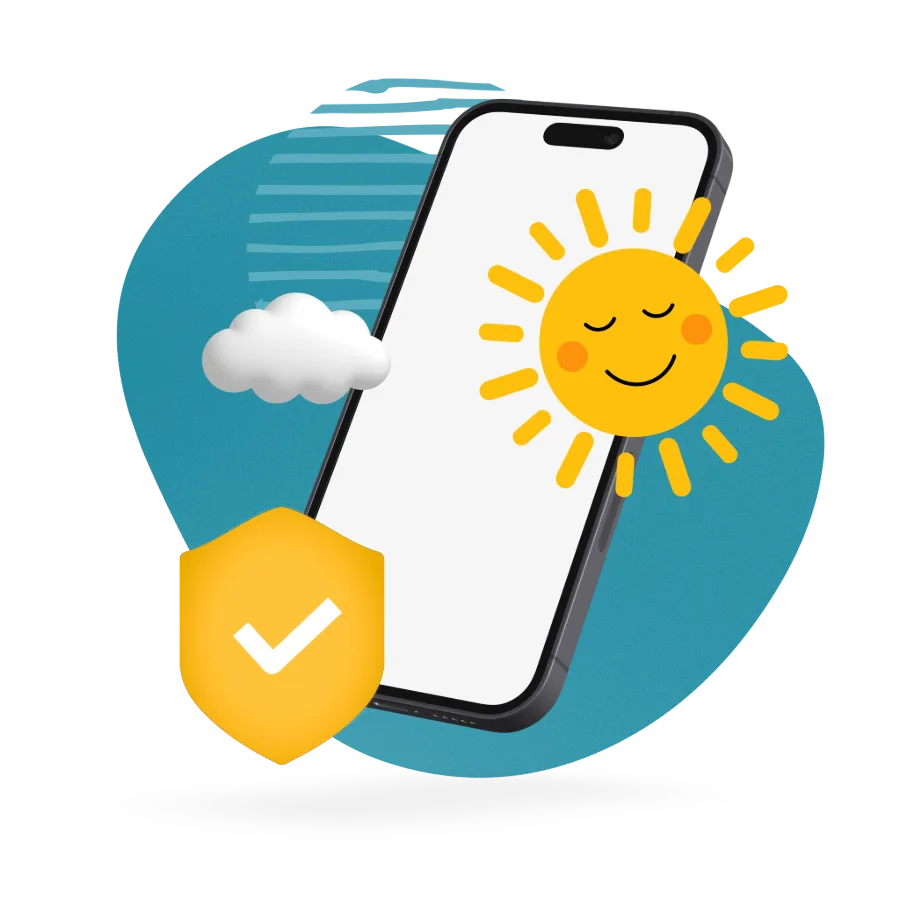
Safe teams. Strong teams.
Fast access to crisis support, mental health care, and safeguarding guidance for athletes and coaches.
If you or someone you know is in immediate danger, call your local emergency number now. In the U.S., call 911 or dial/text 988 for the Suicide & Crisis Lifeline.
Mental Health
Use these resources if you or someone you know is in need of mental health support.
NCAA Mental Health Resources — Education and best practices tailored for college athletes.
Adolescent Mental Health Basics — Information on common warning signs and mental health conditions among adolescents.
Adolescent Mental Health Education — A course on identifying and responding to mental health symptoms in adolescents.
Choosing a Therapist — Guidance on how to select the right mental health professional for your needs.
Therapist Directories — Find a licensed therapist near you.
Relative Energy Deficiency in Sport (REDs) — Symptoms, risks, and treatment information.
NEDA Helpline (US 1-888-375-7767) — Support and information for eating disorder recovery.
Substance Misuse Support — Customized help and recovery resources for overcoming substance misuse.
Athlete Ally — Advocacy and resources supporting LGBTQ+ inclusion in sport.
Support for Men and Boys — Information and services for men and boys who have experienced sexual abuse.
#WeRideTogether — Safeguarding education, abuse prevention, and survivor support resources.
Crisis
Use these resources if you are dealing with an emergency or crisis.
Local Police or Campus Law Enforcement — Report an assault or seek assistance if you are not in immediate danger.
Courage First Athlete Helpline (US: 1-888-279-1026) — Free, anonymous support for coaches, athletes, parents, and allies seeking crisis intervention and guidance on abuse in sport.
988 Suicide & Crisis Lifeline (US: 1-800-273-TALK) — Crisis intervention, emotional support, and referrals for anyone experiencing suicidal thoughts or acute distress.
National Sexual Assault Hotline (US: 1-800-656-4673) — Confidential support, information about your rights, and connection to local services.
Mandated Reporting (US) — Anyone can report suspected child sexual abuse. Learn state-specific reporting procedures and your obligations under mandated reporter laws. Child protective services review reports and may investigate; they can also help families access resources.
US Center for SafeSport — For participants under the Olympic and Paralympic Movements, file a report with SafeSport. Reports to SafeSport are separate from reports to local authorities and can be submitted in tandem. In cases involving minors, follow local mandated reporting requirements first.
Title IX (US schools) — If you attend a K–12 school or university that receives federal funding, contact your campus Title IX Coordinator to make a report. Title IX obligations are separate from law enforcement and require your institution to respond, support safety, and connect you with resources.
Environment (on-site issues or pre-event prep)
We do our best to work ahead, prepare our environment with the safety of our participants top of mind, and equip ourselves with helpful tools and resources in case an instance arises. Use these resources when you are on site at a regatta or swim meet, practice, or competition, or preparing for travel or an event.
Rowing
USRowing Safety Guidelines — Foundational guidance to help ensure your club operates safely.
Club Safety Audit Checklist — Evaluate safety practices for daily programming and events.
Inclusivity Checklist — Audit and improve your club’s inclusivity practices.
The Launch (USRowing) — Educational modules on rowing operations and safeguarding topics.
Swimming
Coach Safety Requirements — Confirm and access current safety requirements for coaches.
Athlete Development Planning — Create plans centered on athletes’ competence, character, confidence, and connection.
USA Swimming University — Education modules on swimming safety and safeguarding.
Hypoxic Training Best Practices — Guidance to manage and mitigate risks associated with breath-holding and underwater training.
Universal Best Practices
Lightning Protocol — If you see lightning and hear thunder within 30 seconds, stop all activity and seek safe shelter immediately. Resume only after 30 minutes have passed since the last observed lightning. Preferred shelters are substantial buildings or fully enclosed vehicles with metal roofs and closed windows. Avoid open fields, open water, solitary trees, and tall poles. If someone is struck, call emergency services at once.
Water Safety — Tips and guidance for open water swimming, including safety planning, venue assessment, and session design.
Concussions — Remove any athlete with a suspected concussion from all activity immediately. Return only after evaluation by a licensed healthcare professional trained in concussion management and with written clearance on file.
Risk Assessment Mapping — Complete environment and travel risk assessments regularly at your boathouse and before any regatta, meet, or away competition.
1:1 Interactions with Minors — Best-practice guidelines for boundaries, communication, transportation, and supervision.
Responding and Reporting Quick Reference — A concise, on-site guide for recognizing, responding to, and reporting suspected abuse or misconduct.
Safeguarding Essentials (Pre-Event) — Proactive checklists and preparation steps to keep athletes and your community safe before your next event.
Important notes
- Resource information can change; confirm details with the provider and follow your organization’s policies and local laws.
- Resources curated in consultation with #WeRideTogether.
- #WeRideTogether (and CrewLAB) does not provide emergency, medical, or legal services.
#WeRideTogether (and CrewLAB) provides general information that is intended, but not guaranteed, to be correct and up-to-date. - The information is not presented as a source of legal advice.
- You should not rely, for legal advice, on statements or representations made within this website or by any externally referenced Internet sites.
- If you need legal advice upon which you intend to rely in the course of your legal affairs, consult a competent, independent attorney.
- #WeRideTogether (and CrewLAB) does not assume any responsibility for actions or non-actions taken by people who have visited this site, and no one shall be entitled to a claim for detrimental reliance on any information provided or expressed.
- #WeRideTogether (and CrewLAB) does not provide emergency, medical, or legal services.

